The trek to Everest Base Camp brings dreams to life. One question stands out before trekkers set out to this heavenly place in the Khumbu region of Nepal: How much does it cost to trek to Everest Base Camp? In 2025, if you are planning for a Spartan solo journey, it might cost a mere $950, while a lavish escapade with a helicopter return could cost up to $3,500. Most wayfarers settle on a cost of around $1,450 for the 14-day Everest Base Camp Trek, which includes the domestic flights for this trek, permits, food, guides and porters, and teahouse accommodations in Sagarmatha National Park. These figures stem from tangible trail realities—fickle weather delays and the arduous high-altitude supply chain.
The Everest Base Camp trek typically costs between $950-1200(minimum) and $5,000 USD per person for the 2025/ 2026 season. It depends on the type of trek, Trekking Agency (Local (Premium vs Recently started) and International Tour Operator), Trek Duration, Accommodations, Permits, personal expenses, and services included (Luxury options). Budget treks can be found for around $1,000-$1,200, while luxury packages can range from $3,000 to $5,000 or more. Additional costs are not usually included by trekking agencies, such as the Nepal Visa, Travel insurance, Gear Rental, and Tips for the Guide and Porter.
Here is the special note from us: Everest Base Camp Trek costs can vary depending on the specific trekking agency, the time of year, and your personal preferences. It's always a good idea to research and compare prices with different sites, agencies, and look for services and a trusted one before booking your trek. Check out the updated prices for 2025 of everything you will encounter during the EBC Trek.
How much does it take to reach Everest Base Camp?
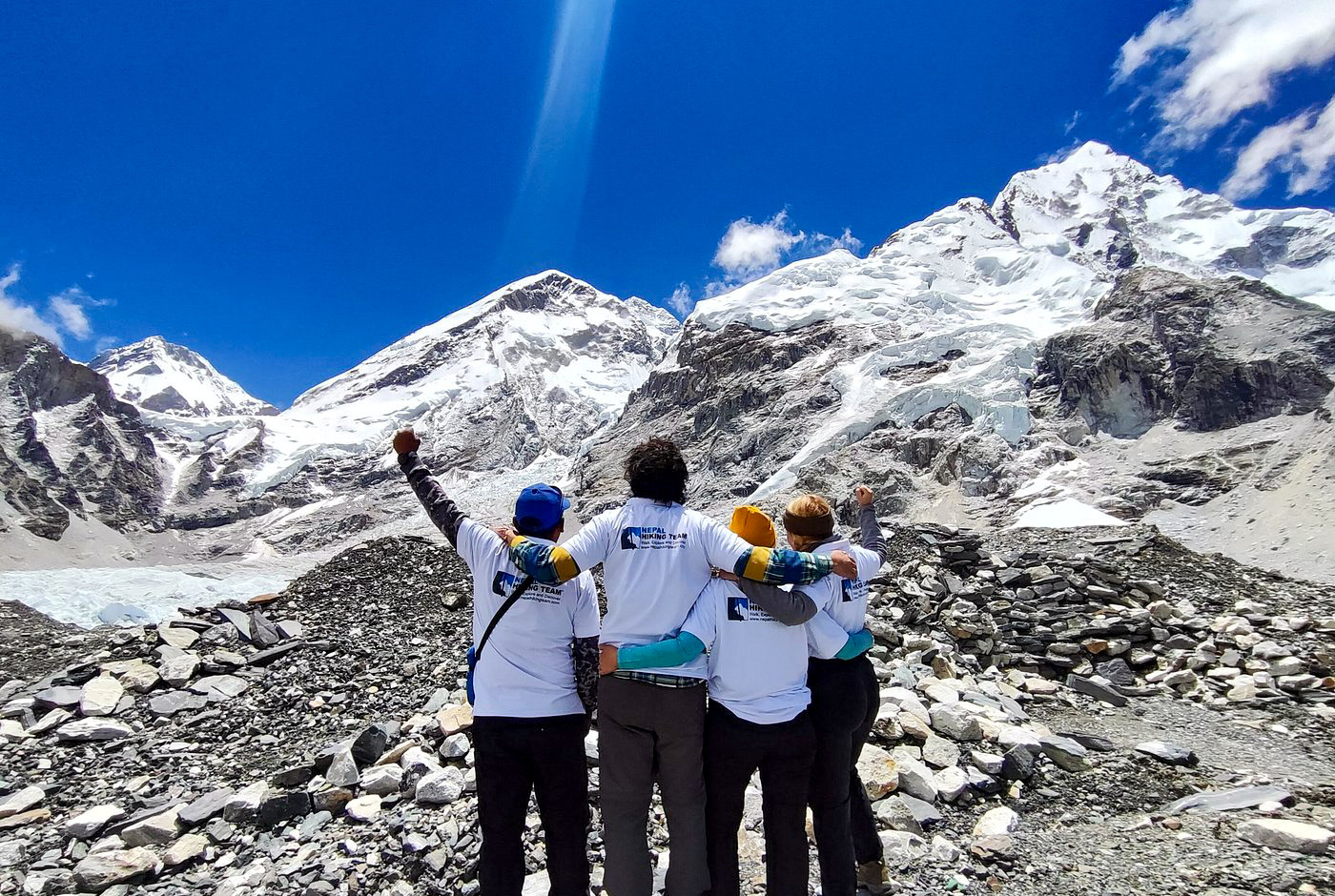
Factors Affecting the Cost of the Everest Base Camp Trek
Trekking Style: The cost largely depends on the level of comfort you choose. A basic, budget-friendly trek can be done for around USD 1,000, covering standard tea houses and simple meals. If you opt for a more comfortable or luxury experience—with upgraded lodges and added services—the price can easily exceed USD 4,000.
Permits: Two permits are mandatory for the trek:
- Khumbu Pasang Lhamu Rural Municipality Permit – Approximately USD 20.
- Sagarmatha National Park Entry Permit – Around USD 30.
- These are fixed government fees and apply to all trekkers.
Flights: The most common route involves flying between Kathmandu and Lukla. A round-trip ticket generally costs between USD 300 and USD 434, depending on the season and airline. Alternatively, some trekkers choose a helicopter ride for convenience, though this is a significantly higher expense.
Accommodation: Tea houses in the Everest region range from very basic to high-end lodges. Budget trekkers can expect to pay around USD 10 per night for standard rooms, while more comfortable or luxury options can cost USD 40–50 per night.
Guide and Porter: Hiring a guide ensures safety and a richer cultural experience. A licensed guide typically costs USD 25–30 per day, while a porter to carry your gear averages USD 15–20 per day.
Food and Drink: Meals on the trail are relatively affordable at lower altitudes but rise in cost as you climb. You can expect to spend USD 20–30 per day on food. Bottled water is available but becomes expensive at higher elevations due to transportation costs, making water purification a recommended alternative.
Tips: It is customary to tip your trekking crew. A good guideline is to budget around USD 10–20 per day, split between guides and porters.
Personal Expenses: Additional costs include charging electronic devices, using Wi-Fi, and purchasing souvenirs in villages along the trail. These vary depending on usage and personal preference, so it’s wise to set aside some extra funds.
Estimated Budget Breakdown
- Permits: USD 40–50
- Flights: USD 300–434 (round-trip)
- Accommodation: USD 10–50 per night
- Food: USD 20–30 per day
- Guide: USD 25–30 per day
- Porter: USD 15–20 per day
- Tips: USD 10–20 per day
- Personal Expenses: Varies (Wi-Fi, charging, souvenirs)
Why Budgeting for Everest Base Camp Is Crucial
Orchestrating your Nepal Everest Base Camp trek cost is as vital as honing your trek preparations. A tardy morning flight to Lukla, an exorbitant water bottle in Gorakshep, or an unforeseen evacuation due to altitude sickness can quickly inflate your EBC trekking costs.
As a local Nepali agency, we have crafted this Everest Trek cost 2025 guide based on our trail experience, starting from Tribhuvan International Airport in Kathmandu and extending to Namche Bazaar and beyond. It details what you will spend on your Everest Base Camp trip and guides you on how to plan smart for a worry-free adventure.
A Detailed Breakdown of EBC Trekking
Pre-Trek Expenses:
The flight prices vary depending on where you are flying from and the season you travel. For example, a round-trip flight from Delhi to Kathmandu may cost you as little as $150–$300, especially in economy class.
If you are traveling from Europe or the UK, the Kathmandu flights range between $800 and $1,500. We anticipate a comparable price range for flights from the USA. Our suggestion to you is to make a plan and book your flights earlier, aiming for the shoulder seasons to save.
International Flights to Nepal: Your journey begins with flights to Tribhuvan International Airport in Kathmandu. As said earlier, costs vary by location.
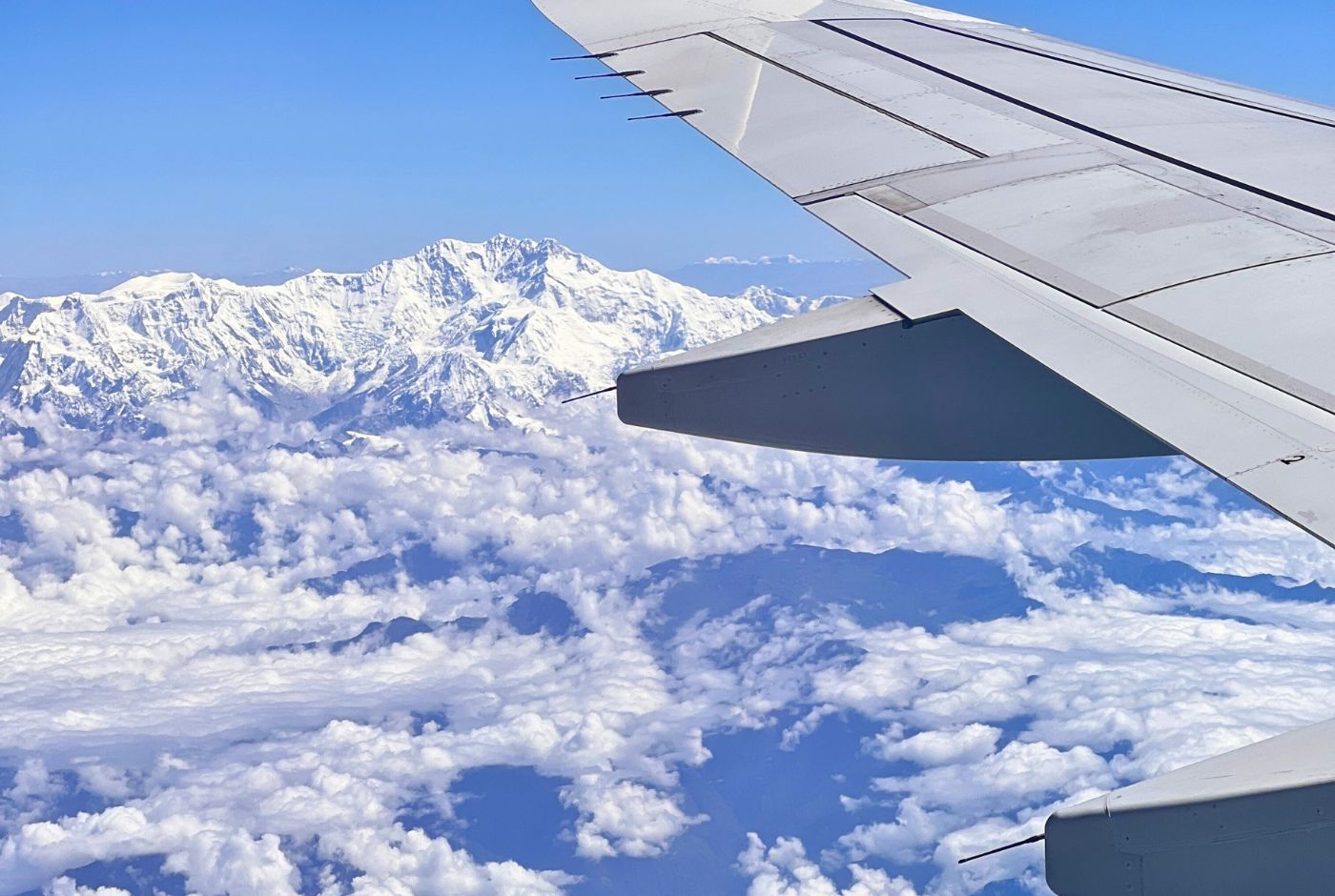
Hotels in Kathmandu
Kathmandu's Thamel district offers budget lodging (ranging from $30 to $80/night) and premium hotels (ranging from $80 to $160+/night). Plan for 2-3 nights to account for potential flight delays and pre-trek preparation.
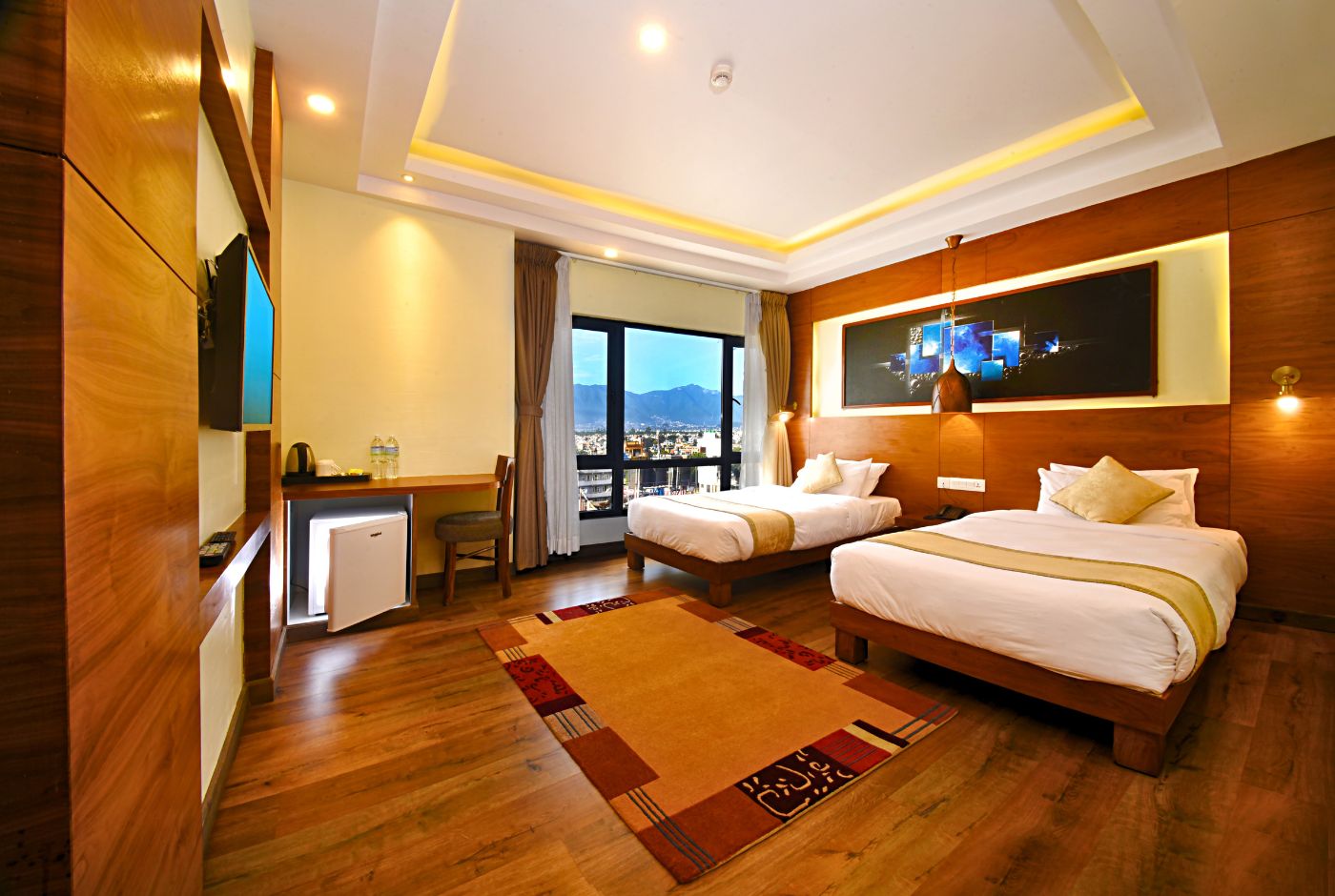
Gear and Equipment
You don't necessarily need to buy all the gear for the Everest Base Camp Trek. Kathmandu is full of shops where you can buy and rent all the gear required for your budget-friendly trekking. You may need essential gear, such as a down jacket, a sleeping bag, trekking poles, a duffel bag, and a backpack.
The overall rental package, which includes these items, may cost you approximately $30 to $50 in total for the entire 14- to 16-day EBC trek.
(Note: The price depends on the quality and negotiation. Many shops in Thamel also offer package deals.
However, if you're looking to buy decent-quality trekking gear in Kathmandu, you should anticipate spending the following total:
- Basic gear: $200-$300 (mixed local + some branded)
- Mid-range: $400-$600 (The North Face, Mountain Hardwear, etc.)
- Premium brands: $700+ (fully imported brands)
Transportation to the Trailhead
The transportation cost for Everest Base Camp typically includes the flight cost for a round trip, a Helicopter if chosen, and Airport pickup/drop-off.
Flights to Lukla
Before starting your Everest Base Camp Trek, you have to reach Lukla, the gateway to Everest. A one-way flight from Kathmandu to Lukla costs around $230 to $250, while a round-trip flight to Lukla costs $452 to $500. The standard baggage weight is 10 kg + 5 kg carry-on; extra charges may apply ($1–$2 per kg). But the cost can differ by airline, and sometimes even if you wish to pay more, you can't take your baggage because it's too heavy.
Mount Everest Tour Package Price - 2025
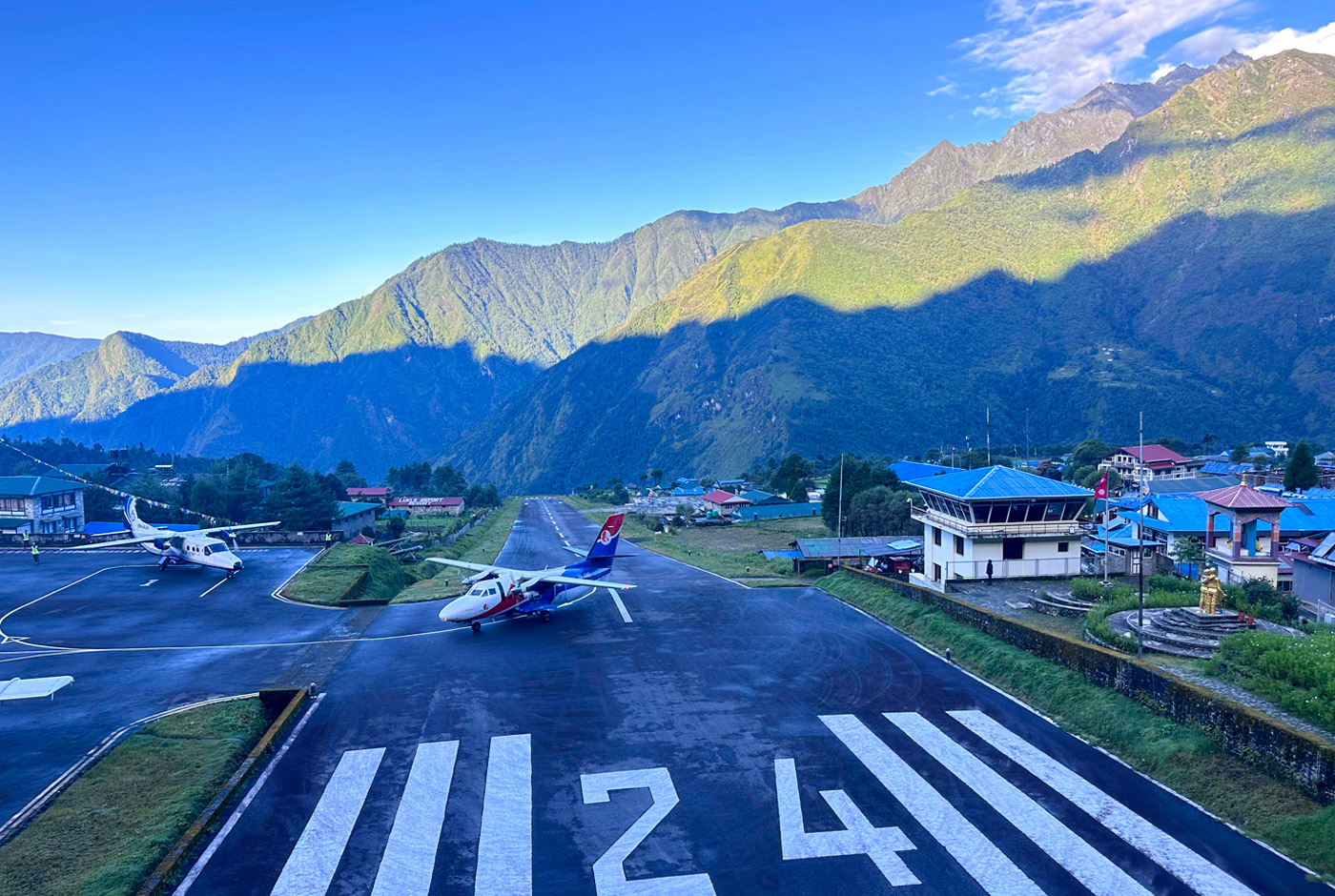
Sometimes, due to weather conditions, if your flight gets redirected to Ramechhap (Manthali Airport), it may charge you $120-$155 for ground transport that takes 4-5 hours by private jeep (comfortable for 5-6 people), followed by the $180 to $220 from Ramechhap to Lukla.
Helicopter Options
For a faster journey, shared helicopter flights from Kathmandu cost between $650 and $700 per person. At the same time, the price for Lukla from Rammechhap is around $550 to $600. A private helicopter charter from Kathmandu to Lukla ranges from $2,500 to $3,000.
How much does it cost to go to Everest Base Camp by helicopter?
For trekkers who wish to return directly from Gorakshep to Kathmandu (via Lukla), the cost of a flight ranges from $2,000 to $4,000.
Pro Tip: Lukla flights are highly weather-sensitive. So, always plan 1-2 buffer days before and after your flight.
Permits Cost for Everest Base Camp Trek
Two permits are essential for Everest Base Camp Trek and will be checked along the trail.
- Khumbu Rural Municipality Permit: The cost of the Khumbu Permit is NPR 2,000 per person.
- Sagarmatha National Park Permit: The cost of the Sagarmatha National Park Permit is NPR 3,000 + 13% VAT. For SAARC citizens, it is only NPR 1,500. Children under 10 are exempt.
Tengboche Monastery Fee: You'll need a Tengboche ticket to enter the region's most iconic monastery. The small entry fee for Tengboche Monastery is NPR 300 ($3) per person, collected at the gate.
Others?
- Gaurishankar Conservation Area Permit: If you are trekking the Jiri route (the classic trek from Jiri). Cost is NPR 3000 per person.
- TIMS cards: For the EBC Trek, TIMS cards are not required.
Nepal Visa
A tourist visa can be obtained at Tribhuvan International Airport or through the online application process. The 30-day visa is suitable for the Everest Base Camp Trek, which lasts 12 to 16 days. The tourist visa costs $50 for a 30-day stay in Nepal. Extensions cost $3 per day, with a $25 fee for multiple entries or a $5 daily late fee.
Travel Insurance Cost
Travel insurance is recommended, costing $100 to $200 in Nepal. These insurance types may be valid for 30 days. Ensure coverage for emergency evacuation up to 6,000 meters, as helicopter rescues from Gorakshep can exceed $5,000. It would be better if you consulted the insurance companies in your country.
Insurance service providers like World Nomads, Allianz, and AXA Travel Insurance shall be beneficial to the trekkers for their coverage of altitude and evacuation terms.
Medical Kit
Safety is paramount on the trek to Everest Base Camp in the Khumbu region, where high altitudes pose significant risks, including altitude sickness. Having a well-prepared medical kit is crucial. When booking with a trusted agency like Nepal Hiking Team, a standard first-aid kit—packed with essentials such as bandages, antiseptics, painkillers, oral rehydration salts, and an oximeter—is typically included in the cost of the Everest Base Camp Trek at no extra charge. This covers basic needs for your Everest Base Camp trip through Sagarmatha National Park.
What is the cost of Mt Everest Base Camp Trekking?
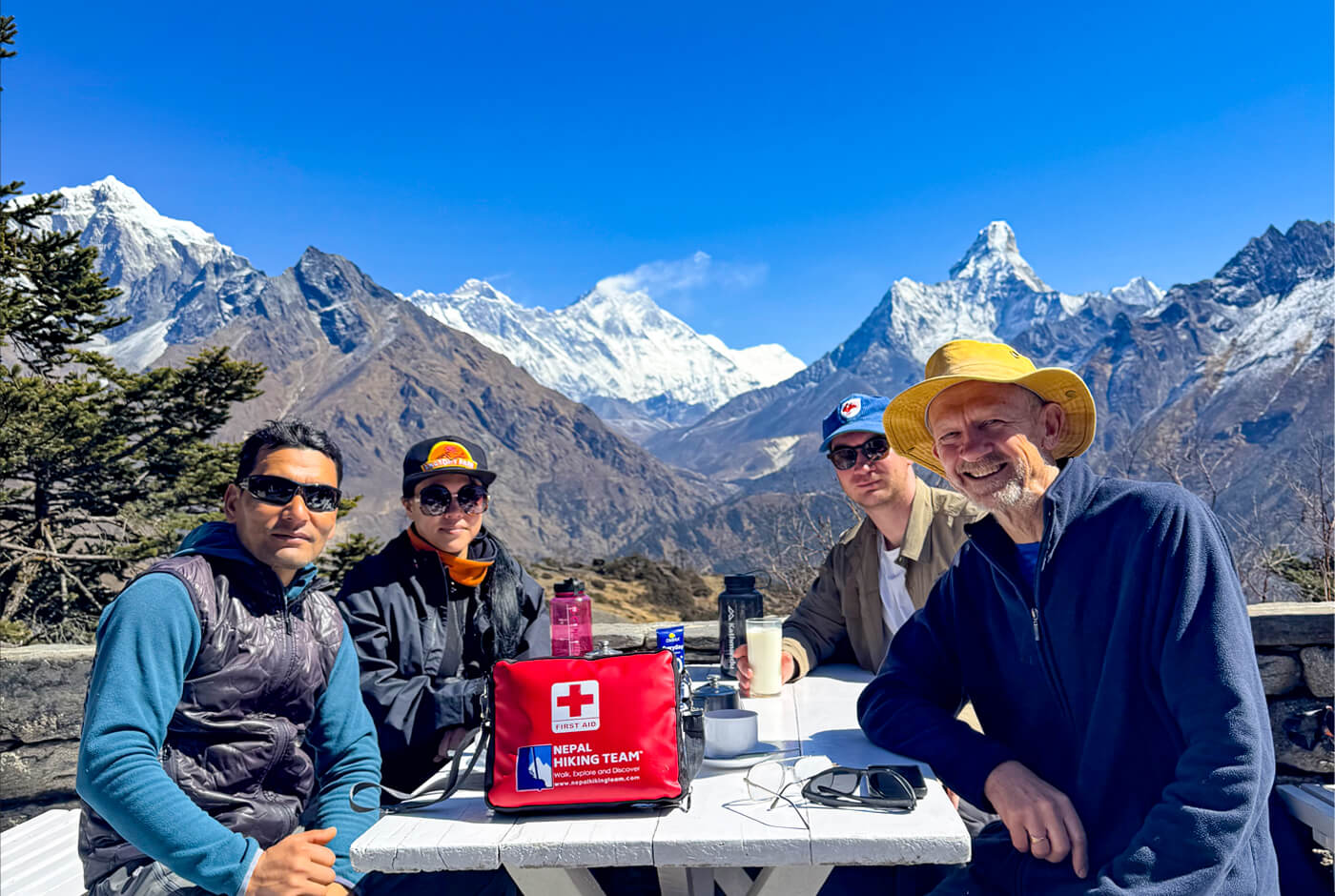
For advanced altitude sickness precautions, additional equipment comes with extra costs. Renting a portable oxygen cylinder for emergencies runs between $180 and $250, depending on size and usage duration. For more serious protection, a portable altitude chamber (PAC or Gamow bag) costs approximately $250–$300, which is comparable to the cost of the full Everest Base Camp Trek.
These are best arranged in advance through your local guide or agency, especially for high-risk or expedition-style treks, rather than standard group journeys from Tribhuvan International Airport to the awe-inspiring views of Mount Everest.
Daily Trail Expenses
Accommodation Cost of Everest Base Camp
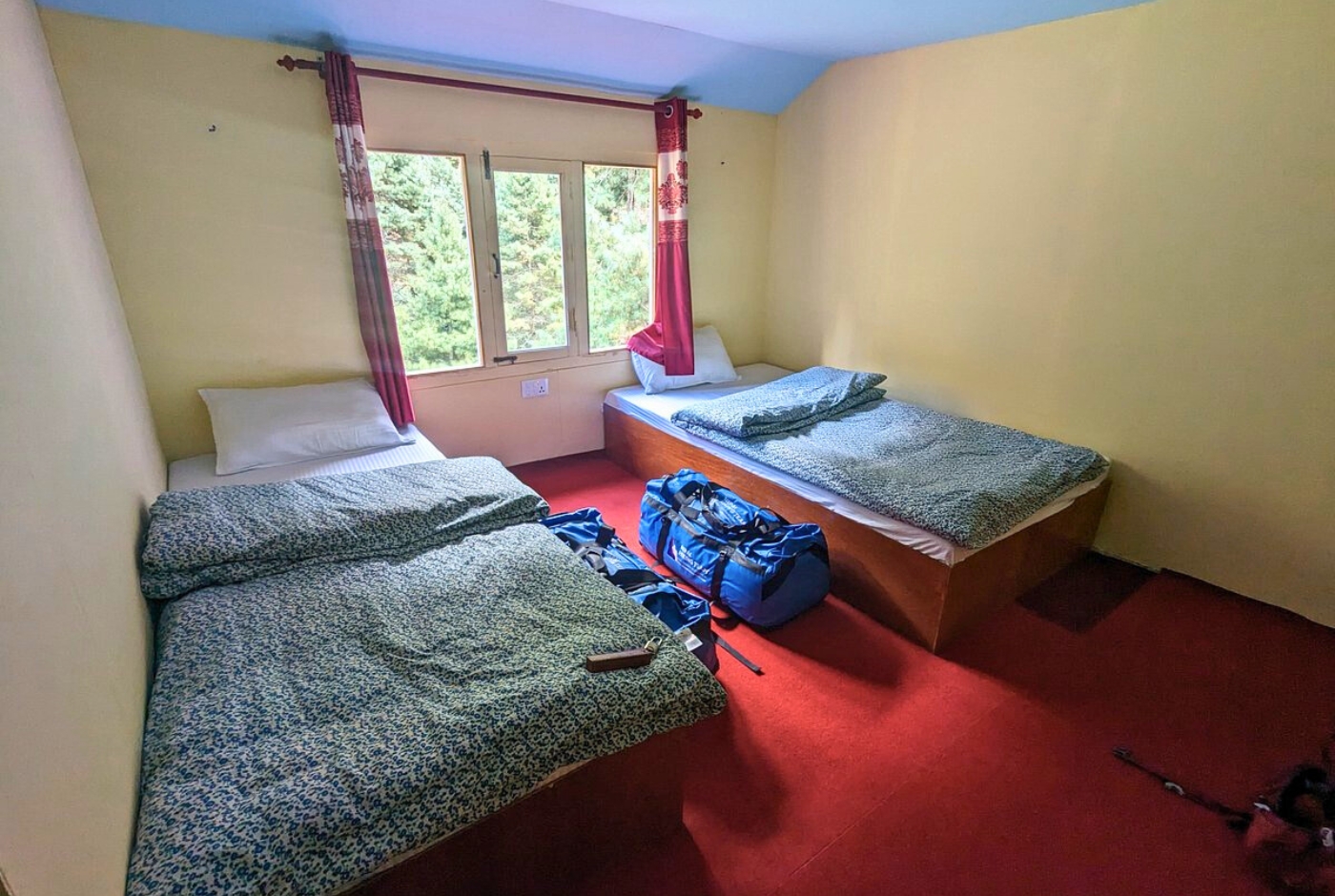
The Everest Base Camp Trek cost includes shelter that varies in height and comfort level. Teahouses, the most common type of accommodation, offer simple twin rooms with shared latrines. In the lower villages like Lukla, Phakding, or Namche Bazaar, you can expect to pay $7 to $10 for a room.
As you climb to high-altitude areas like Dingboche, Lobuche, and Gorakshep, costs rise to $15–$25 per night due to logistical challenges in Sagarmatha National Park.
For a premium experience, luxury lodges like Hotel Everest View or Mountain Lodges of Nepal charge $320–$700+ per night, ideal for those on helicopter return itineraries. Optional amenities, such as electric blankets or heaters, incur an additional charge of $30–$100 per night, depending on the lodge.
Electricity Cost on EBC trail
In lower villages like Lukla and Namche Bazaar, hydropower ensures reliable electricity, often available for free to charge devices when dining at the teahouse. Higher up, solar power dominates, with charging fees of $5–$15 (NPR 500–NPR 1,500) per device, which increases with altitude. Power banks and camera batteries may incur higher fees.
Bring a Type C or D plug adapter and charge during mealtimes for consistency. At high altitudes, preserve battery life by insulating spares in socks or gloves, especially during poor weather conditions.
Wi-Fi and Internet prices along the route of Everest
Most teahouses along the Lukla to Gorakshep route offer Wi-Fi, with costs increasing at higher altitudes. Prepaid cards from providers like Nepal Airlink cost NPR 1,000 ($10) for 24-hour unlimited access or NPR 1,500 ($15–$20) for a 20 GB package.
Connections may be slow throughout the journey due to higher altitudes, but data is generally available at most stops along the route. Purchase cards in Namche Bazaar or Lukla for convenience.
Mobile Network
NTC and Ncell SIM cards, available at Tribhuvan International Airport in Kathmandu and in Thamel shops, cost NPR 100–150 ($1–$1.50) with a valid passport and photo. Data packages (1 GB for NPR 300–500, or $3–$5) provide affordable connectivity along the trek to Everest Base Camp. Signal strength weakens at higher altitudes, so plan usage accordingly.
Food and Drink ($25–$50 per day) Cost during Everest Trek
Everest Meals Cost
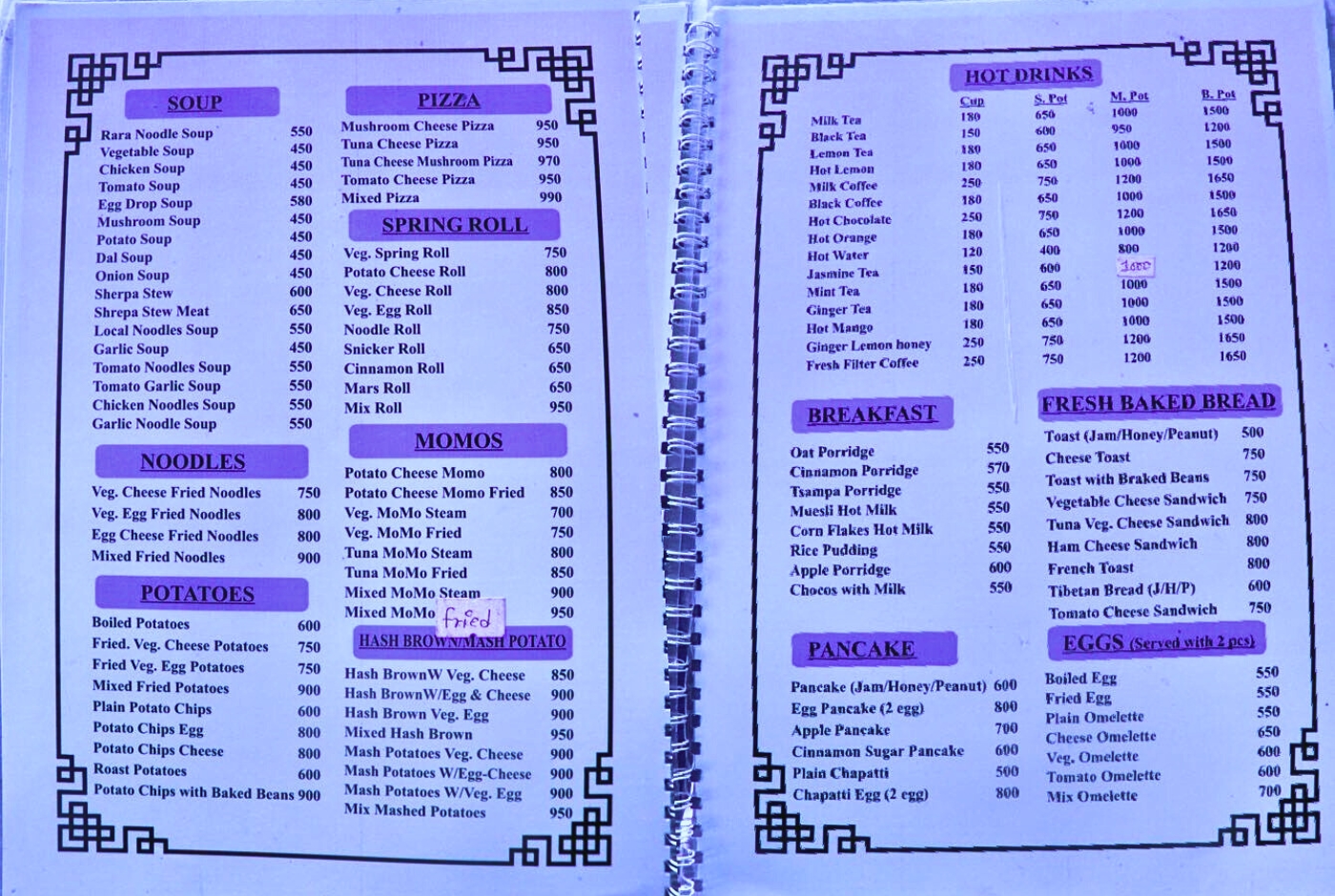
Food prices account for a significant portion of the cost of an Everest Trek 2025, ranging from $25 to $50 (NPR 2,000–5,000) per day. The prices increase with altitude since the food has to be carried from Lukla by plane or by guide, porter, or yak. Typical prices:
- Breakfast: $5–$7 (toast, eggs, pancakes, porridge, tea/coffee).
- Lunch/Dinner: $5–$10+ (dal bhat, fried rice, momos, noodles).
- Western meals (pizza, burgers): $8–$10+.
- Hot drinks (boiled drinking water, tea, coffee): $2–$4.
- Water bottle: $3–$6 (NPR 350–700) per liter; use a filter or SteriPen to save money and reduce environmental impact.
- Snacks: $3–$7 for energy bars or chocolates.
Budget Tip: Eat at your teahouse to lower room costs, and choose dal bhat for affordable, filling meals with free refills.
Hot Showers
In Lukla, Phakding, and Namche Bazaar, gas- or solar-heated showers cost $5–$8, with some lodges offering attached bathrooms. From Tengboche to Dingboche, expect $7–$10 for shared facilities. At high altitudes in Lobuche, Pheriche, or Gorakshep, bucket showers cost $8–$15 due to the manual heating of water.
Laundry Services
Laundry is available in Namche Bazaar and Dingboche, with hand-washed items costing $1 for a T-shirt and $2–$3 for larger items. Drying depends on the weather, often near fireplaces.
However, there is no fixed laundry service offered in Dingboche. Sometimes the teahouses may provide you with hot water, and you need to wash your clothes by yourself. In some cases, certain teahouses may offer laundry services, but you might have to pay $5 for each item of clothing.
Therefore, it is recommended that you pack extra essentials, such as socks and base layers.
Guides and Porters ($550–$600, excluding tax) Cost and Price
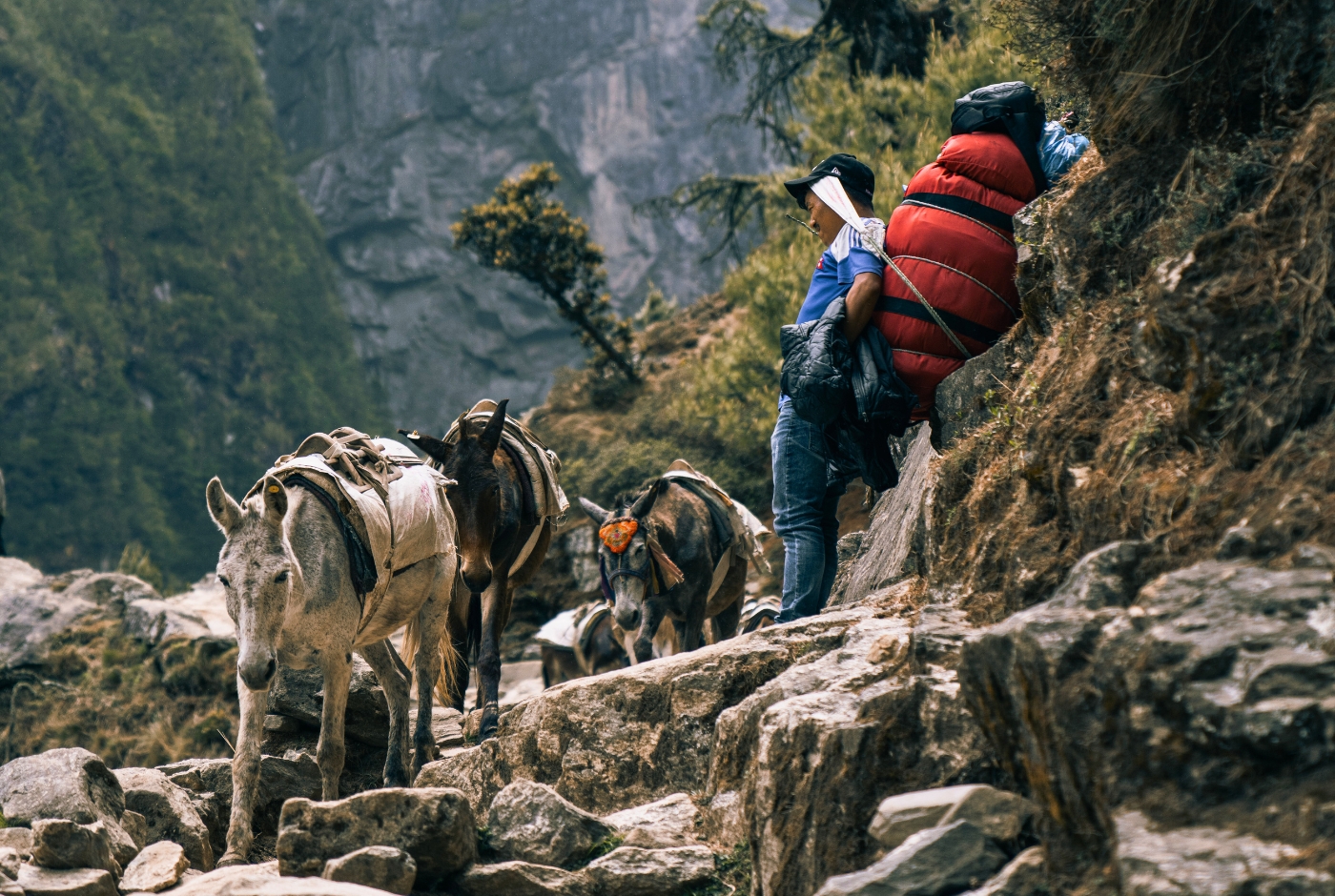
A local guide costs $25–$30 per day ($300–$350 for 12 days), while porters typically charge $20–$25 per day ($250–$300 total), generally. However, if you are in a group and lucky enough to manage links or go through tour operators, you could get a guide-porter, who combines light guiding and load-carrying, for $25–$35 per day. These professionals enhance safety, particularly in high-risk areas such as the Khumbu region, where risks include altitude sickness.
Money-Saving Tips for the EBC Trek
- Join a group to share guides and porter costs.
- Rent gear in Kathmandu to reduce expenses.
- Use a refillable water bottle with a built-in purifier to avoid the cost of bottled water.
- Pack snacks from Kathmandu to save on trail purchases.
- Opt for dal bhat over pricier Western meals.
- Skip luxuries like beer, Wi-Fi, and hot showers at high altitude.
- Stay in budget hotels in Kathmandu's Thamel area.
- Book a morning flight to Lukla to avoid delays.
- Trek in shoulder seasons (late February–March or late November) for lower costs.
- Choose basic teahouses over luxury lodges.
Group vs. Private Trek Cost Analysis
Choosing between a group or private Everest Base Camp trip affects both your experience and the cost of your Nepal Everest Base Camp trek. Here is a detailed analysis of how these options compare in 2025 for your trek to Everest Base Camp in the Khumbu region.
Group Trek ($1,200–$1,800) to Everest Base Camp Cost
Everest Group Trek Cost
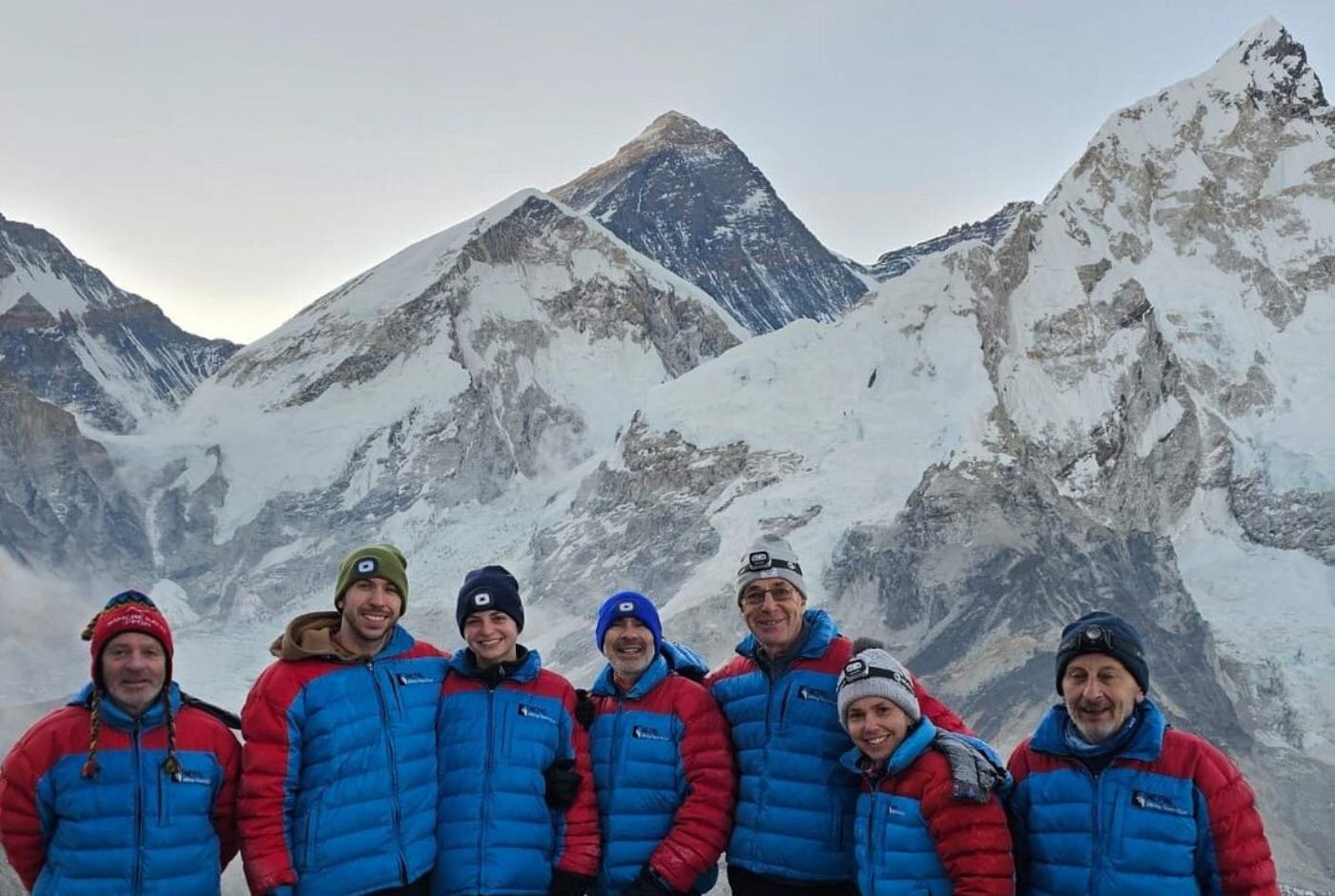
A group trek is ideal for solo travelers or those seeking to minimize the cost of the Everest Base Camp Trek. You'll follow a set itinerary, sharing guides and porters with 6–15 fellow trekkers, creating a lively, communal spirit in Sagarmatha National Park. It's an economical strategy to revel in the gorgeous views of Mount Everest without overspending.
Private Trek ($1,800–$3,000+) Cost to Everest Base Camp Trek
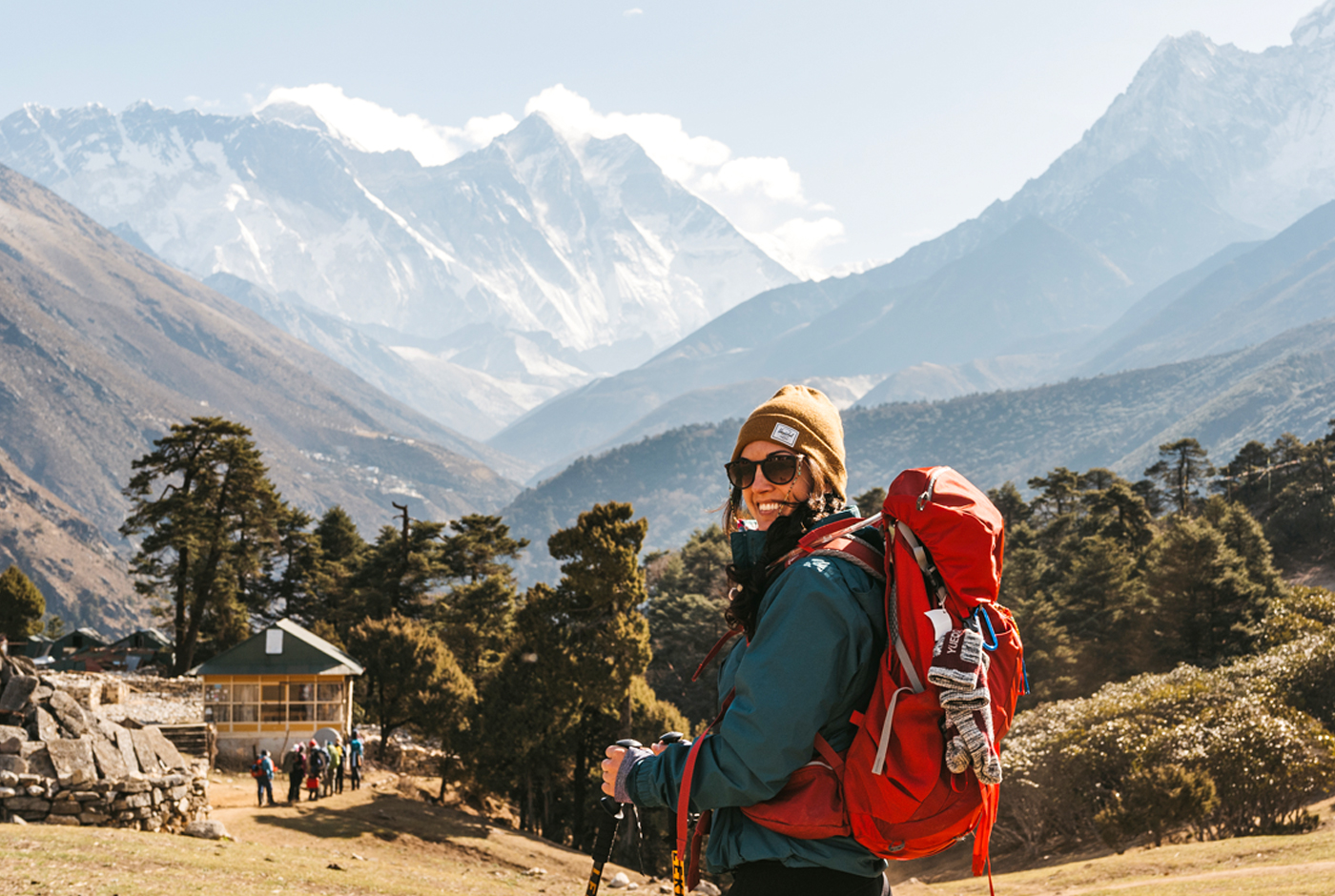
A private trek offers the flexibility for couples, families, or individuals seeking a tailor-made Everest Base Camp Trek. With your local guide, you can choose the pace and rest breaks, which are ideal for addressing high altitude or concerns about altitude sickness. Choose cozy teahouses or indulge in opulent lodges to experience ultimate luxury. For a grand adventure, a helicopter return can elevate costs to over $5,500, offering breathtaking panoramas of the Khumbu region.
Booking with a Local Agency
For the best Nepal Everest Base Camp trek cost, book with a local agency. Packages include:
- Budget ($950–$1,450): Basic teahouses, permits, return flight, guides, and porters.
- Standard ($1,250–$1,600): Full-board meals, better teahouses, all logistics.
- Luxury ($2,000–$4,000+): Premium lodges, private rooms, optional helicopter.
Local agencies support the communities of Sagarmatha National Park and offer competitive pricing. You may need to book early for the trekking season (March–May, September–November) if you wish to experience the truly breathtaking views of Mount Everest.
Everest Base Camp Trek Cost with Nepal Hiking Team - 2025/26
At Nepal Hiking Team, we have nearly two decades of experience in supporting trekkers on their journey to the base of Mount Everest. We handle logistics so you can focus on the experience, from your first day in Kathmandu to your final descent.
Private airport transfers, 3-star hotel stays in the capital, full-board meals on the trail, and experienced guide porters with medical training—all come standard. During the trek, you will remain in warm, welcoming lodges—some with private bathrooms and hot showers—at key stops.
Our experienced trekking leaders carry oxygen oximeters for altitude monitoring and to help prevent altitude sickness. You will also receive high-quality trekking gear for added convenience. We include flights to Lukla, all permits, porter services, daily tea or coffee, and fresh fruits on the trail in our package.
Everest Base Camp trek packages with Nepal Hiking Team vary in price depending on your preferences for comfort and customization, ranging from $1,425 to over $4,000 per person. Our standard group treks usually fall within the $1,425 to $1,600 range. We're ready for your next adventure, from top treks in Nepal, such as Everest and Annapurna, to local day tours. Are you?
Frequently Asked Questions about Everest Cost
How much does the Everest Base Camp trek cost in 2025?
Budget treks start at $950, standard at $1,250-$1,600, and luxury at $2,000-$4,000+. Different trekking agencies offer various packages. The costs of international tour operators are slightly higher than those of local trekking agencies in Nepal. The typical price range is between $2,500 and $4,000. While the services are similar to those of a local trekking company, prices increase due to higher overhead, marketing, and partnership costs.
How much does it cost to go to Everest Base Camp in rupees?
A budget trek for independent travelers usually ranges between NPR 127,800–170,400 (USD 900–1,200). This includes flights, permits, teahouse lodging, and meals at a basic level. Budget trekking suits those who want to keep costs low and don’t mind simpler food and accommodation.
Most trekkers opt for a standard guided package, which ranges from NPR 170,400 to 241,400 (USD 1,200–1,700). This option covers flights, permits, a guide, a porter, and standard meals and lodging. Luxury treks with better lodges, extra acclimatization days, and private services can climb to NPR 284,000–710,000 (USD 2,000–5,000). Prices vary by season, group size, and the level of comfort you prefer.
How much does it cost to go to Everest Base Camp by helicopter?
Shared helicopter tours generally cost NPR 170,400 to 227,200 (approx. USD 1,200–1,600) per person. This type of flight is popular with those short on time, since it gives the Everest experience in just a few hours.
Private charters are significantly more expensive, ranging from NPR 639,000 to NPR 880,400 (USD 4,500–6,200) per trip. These flights often allow landings at Kala Patthar or Gorak Shep, offering stunning, close-up views of Everest. Extra costs may apply for meals or hotel stops, such as breakfast at the Everest View Hotel, which is about NPR 5,600. Weather and group size also play a significant role in final pricing.
How much does it cost to trek Everest Base Camp from Kathmandu?
The Lukla round-trip flight typically costs NPR 56,800–71,000 (approximately USD 400–500) and is one of the most significant single expenses. Permits are also required: Sagarmatha National Park entry is around NPR 3,000, and the Khumbu municipality permit is about NPR 2,000.
Guides and porters are an optional but common expense. Hiring them costs NPR 42,600–99,400 (approximately USD 300–700), depending on the trek length and the amount of tipping. Accommodation in teahouses ranges from NPR 500 to NPR 1,000 per night, and meals average a cost of NPR 800 to NPR 1,200 each. Adding these together, a guided trek usually falls within NPR 170,400–241,400 (approx. USD 1,200–1,700).
Can I trek EBC on a budget? Can I trek without a penny?
Yes, it’s definitely possible to trek to Everest Base Camp on a budget, and sometimes even for free. For this, some tour operators organize or offer special deals for groups of 15 to 20 people, particularly friends, family, school members, or those from a third party. However, keep in mind this is not always the case, and out of 20 members, only one or two members of the group can trek to Everest Base Camp without any cost.
- To trek to Everest Base Camp on a budget,
- Trek with group members (the more trekkers, the lower the price)
- Pick the low season (winter and summer).
- Choose basic facilities, meals, and drinks.
- Rent the gear
Which Everest Base Camp Trek Option Is Right for Me?
If you want to save money and enjoy a social vibe, go with a group trek (US$1,200–1,800). If you need total flexibility, privacy, or luxury add-ons (up to $5,500+), opt for a private trek.
Conclusion: Your Investment in Adventure
From the lively bustle of Kathmandu’s Tribhuvan International Airport to the serene, windswept vastness of the Everest Base Camp, this trek guide asks for more than just payment. It’s earned with every steady breath, quiet perseverance, and purposeful step through the Khumbu region toward the breathtaking views of Mount Everest. Some people opt for a simplified adventure, costing $950 for basic teahouses in places like Namche Bazaar, and rely on sheer willpower to tackle high-altitude obstacles. Others select the lavish route, with luxurious lodges or a helicopter ride back, resulting in expenses soaring to $4,000.
The cost of the Nepal Everest Base Camp trek varies depending on your preferences—whether you hire guides and porters or secure travel insurance plans. The trails of Sagarmatha National Park promise no guarantees but deliver lifelong memories.
At Nepal Hiking Team, a local agency based in Kathmandu, we tailor your Everest Base Camp Trek itinerary to suit your budget, ensuring every moment is worth cherishing. For tailored quotes, please contact the Nepal Hiking Team, and we will assist you in your journey.
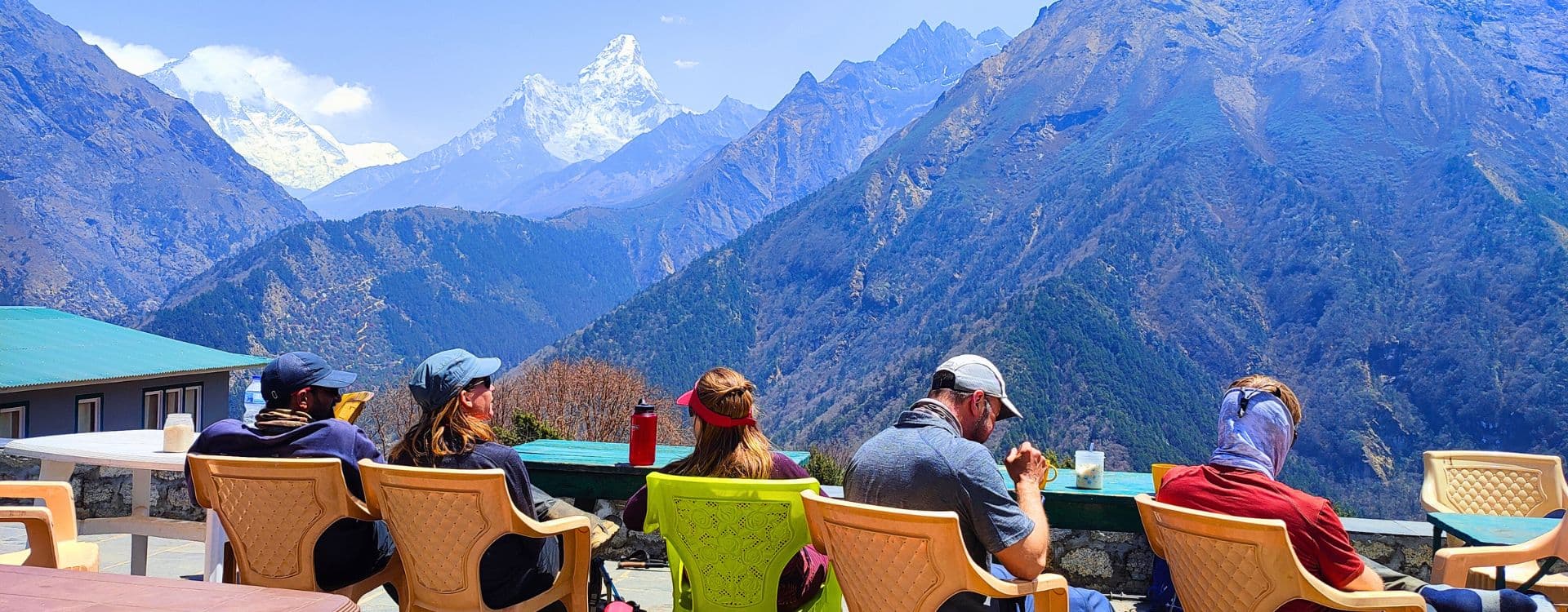

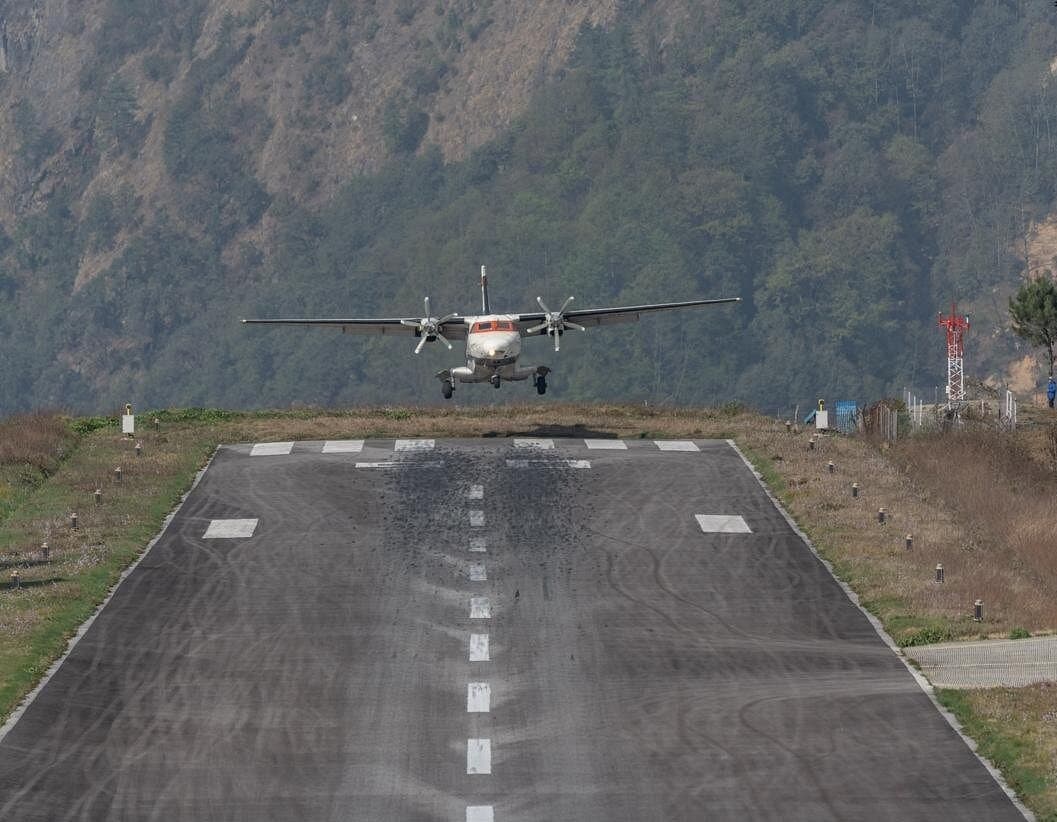
Post a Comment